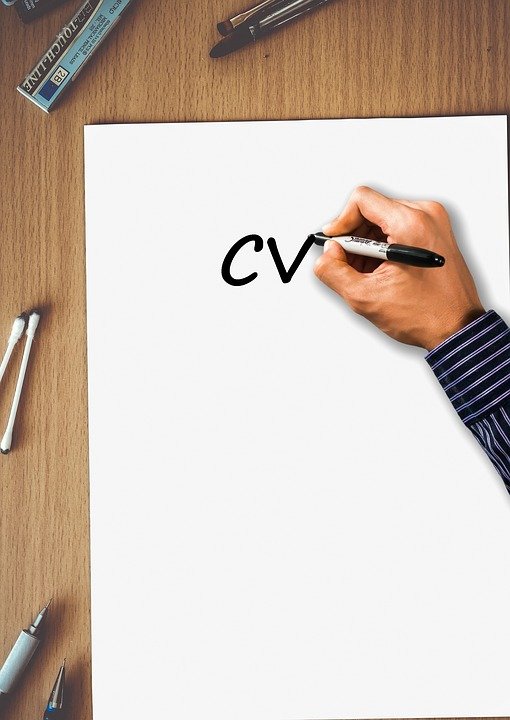
What Employers are Actually Looking for on Your Resume

Knowing what a potential employer wants to see on your resume is incredibly nerve wracking. What’s more, trying to find a perfect balance of experience, personality, and how you fit into the job description isn’t easy. As such, there are some habits that most of us have grown accustomed to but employers don’t necessarily want to see on a resume.
I’m here to help you edit your resume down to only the best parts of itself and give you some insights about the most important parts of a resume, through the eyes of a potential employer.
No Nonsense
Employers are looking for candidates who are qualified, professional, and also real. They don’t want to feel like anyone is just telling them what they want to hear.
We’ve all done it, adding some “fluff” (or too much fancy sounding wording) to a resume just to take up space or tweaking our experiences to try and make it sound a bit more related to the position. Speaking in plain, work appropriate text is best for a resume. It doesn’t have to sound like a college paper, but it shouldn’t be too casual either. Just imagine how you would talk to your boss and try to find a nice balance in between the two.
It’s also okay if every job that you’ve had hasn’t been related to the job you’re applying for. Each of us has had our own experiences that have led up to our current position. Sometimes we’re afraid that it might look like we’re aimless or that we jump around from job to job. However, every job that you’ve worked has given you valuable career experience that will be beneficial no matter what position you apply for. Employers will see that and will trust that you’re applying for their position because you have related experience.
This should go without saying, but it’s important to get this one out there – don’t lie. There are no judgements here. We have all told a little white lie every once and awhile, but a resume isn’t a good place for one. Experienced recruiters can see through that and will likely spot a lie. Not to mention, when it comes to the interview, you could be caught in a lie or have to make stuff up on the spot and that’s just an uncomfortable place to be overall. You definitely have related experience that you can talk about instead of stretching the truth.
Speaking of telling the truth, keep everything you need to say about past jobs short and sweet. Keep your explanations around what your duties were and why you left to a minimum. These sections can get really stressful. So, if you can help it, just keep the reason you separated out of it completely. That way, no one’s feelings are hurt. Not to mention, all of us has that previous employer that left a bad taste in our mouths. It’s not quite professional to bring up past drama with an employer, so if you’re asked to describe your relationship with the employer keep it short, truthful, and cordial.
Excellent Spelling & Grammar

Employers are looking for candidates who are dedicated to their work. Even if your position doesn’t have much or anything to do with writing, you should make sure that you dedicate enough time to sounding your best.
Excellent writing also includes making sure that everything is spelled correctly and your sentences are saying what you intended. It’s not a bad idea to have a friend or family member that you trust read over it quickly to make sure it has a nice, consistent flow. They’ll know right away if the “voice” of your resume sounds true to your personality and is adequately showcasing your skills.
In addition, a lengthy objective, opening paragraph, or unnecessary explanations can all be left out. Objectives are a thing of the past; you don’t have to include why you’re applying for the job, the recruiter already knows that. If they want to know about your goals in regards to your career, they will simply ask you. Just make it easier on yourself and include everything that is relevant and pertinent to your interview.
Pay attention to what the employer is asking for!
If the employer is asking for a cover letter, you can usually sneak in some personal (work appropriate) information about yourself. That’s basically the purpose of a cover letter — to help them get to know you. So, if you already have one of those, you shouldn’t need to add in extra explanations about yourself or your past jobs, because you’ve already done a great job of that in the cover letter.
A Little Bit of Bragging is Okay
They want specifics about why you are absolutely the best person for the job. Now is not the time for too much modesty. Now, that doesn’t mean that you need to list every achievement that you can think of (even though it’s impressive). Pick and choose the accomplishments that you’re most excited about, but that also fit very well with this specific job.
Yes, that also means that you should adjust your resume according to the job you’re applying to. I know that it might seem like a pain, but it really pays and increases your chances of getting accepted if you take the time to really understand what they’re looking for. Employers are more likely to overlook your application if they feel like they’re being sent a generalized, blanket resume that doesn’t specifically explain why this particular job is a great fit for you.
Writing up a resume is tricky business. It’s okay if it takes some time for you to get it just right. Someone who spends time on their resume will end up with a final product that is impressive to recruiters. You should feel confident that your resume truly expresses who you are as a person, as a professional, and as a hopeful employee of their company. Interviews are stressful enough as it is, you shouldn’t spend it worrying about what’s on the sheet in front you. It can be wise to use a professional service such as Arielle (https://arielle.com.au/) as they can give you a finished product that you can use as a guideline for any future resumes. You’ll already have a perfectly painted story of your work history and why you’re the best candidate for the job.















































